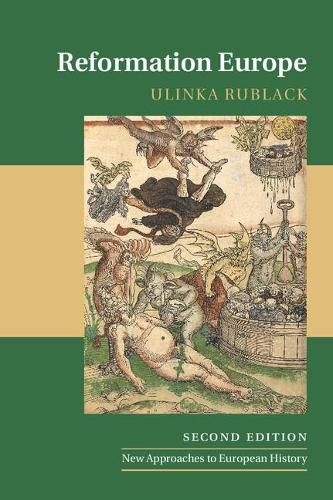Readings Newsletter
Become a Readings Member to make your shopping experience even easier.
Sign in or sign up for free!
You’re not far away from qualifying for FREE standard shipping within Australia
You’ve qualified for FREE standard shipping within Australia
The cart is loading…






How could the Protestant Reformation take off from Wittenberg, a tiny town in Saxony, which contemporaries regarded as a mud hole? And how could a man of humble origins, deeply scared by the devil, become a charismatic leader and convince others that the Pope was the living Antichrist? Martin Luther founded a religion which to this day determines many people’s lives, as did Jean Calvin in Geneva one generation later. In this new edition of her best selling textbook, Ulinka Rublack addresses these two tantalising questions. Including evidence from the period’s rich material culture, alongside a wealth of illustrations, this is the first textbook to use the approaches of the new cultural history to analyse how Reformation Europe came about. Updated for the anniversary of the circulation of Luther’s ninety-five theses, Reformation Europe has been restructured for ease of teaching, and now contains additional references to ‘radical’ strands of Protestantism.
$9.00 standard shipping within Australia
FREE standard shipping within Australia for orders over $100.00
Express & International shipping calculated at checkout
How could the Protestant Reformation take off from Wittenberg, a tiny town in Saxony, which contemporaries regarded as a mud hole? And how could a man of humble origins, deeply scared by the devil, become a charismatic leader and convince others that the Pope was the living Antichrist? Martin Luther founded a religion which to this day determines many people’s lives, as did Jean Calvin in Geneva one generation later. In this new edition of her best selling textbook, Ulinka Rublack addresses these two tantalising questions. Including evidence from the period’s rich material culture, alongside a wealth of illustrations, this is the first textbook to use the approaches of the new cultural history to analyse how Reformation Europe came about. Updated for the anniversary of the circulation of Luther’s ninety-five theses, Reformation Europe has been restructured for ease of teaching, and now contains additional references to ‘radical’ strands of Protestantism.